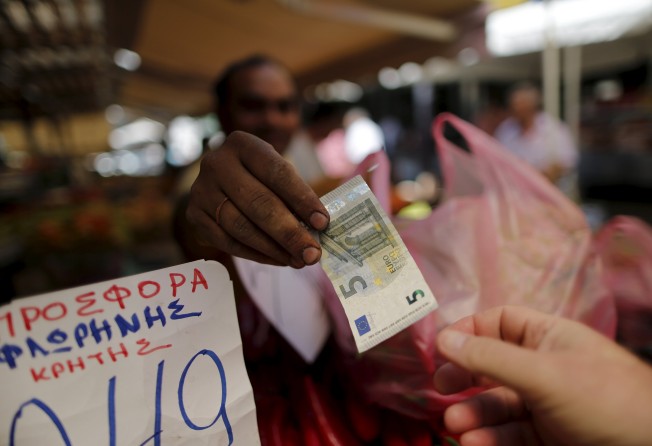Policymakers flounder as global recovery starts to stall
After years of low interest rates, huge monetary injections and fiscal stimulus, policymakers are running out of ready solutions to stop the rot

A much cooler mood is descending over global markets and investors could be feeling more than a cold snap if economic growth prospects start to freeze over in the coming months.
Just at the point when the global economy should be primed full of monetary stimulus ready to extend on the next leg of recovery, there are disturbing signs of economic sentiment starting to stall. What's worrying is there is not a lot that world policymakers can do to prevent it.
After years of rock bottom rates, massive monetary injections and a huge flood of fiscal stimulus, global policymakers are running out of bright ideas and ready remedies to stop the rot. The magic box of policy tricks that central banks and governments generally turn to in times of need is looking alarmingly bare.
The deep crisis in Greece, stock market mayhem in China and worries about a return to tougher monetary policy in the US are just the top of a long list of worries niggling global investors and now starting to make a deeper dent in global economic confidence.
OECD leading cyclical indicators have been hinting at slower recovery momentum for months. The latest round of purchasing managers' surveys are also pointing to weaker growth ahead. China's July PMI reading sank to 48.2, suggesting the nation's vast factory sector is contracting at its fastest pace in 15 months. It casts doubts about the government hitting its 7 per cent growth target this year. This is a troubling trend that is being experienced across the globe and challenging official complacency about upbeat hopes for continued recovery extending uninterrupted for much longer.
The dilemma is whether hints of slower recovery are a natural business cycle slowdown or something much more sinister in terms of the global financial crash moving into a more damaging phase.
The global financial crash was the product of excessive credit expansion, over-leverage and rash financial practices. The worry now is that the global economy could be entering a new phase of uncertainty and greater market dangers.
The impact of zero interest rates and extreme money-creation from quantitative easing definitely pepped up the global recovery by boosting economic confidence in the past six years. But it might have gone too far, pumping up irrational investor exuberance and encouraging over-zealous risk-taking in financial markets.
Much of the QE-related five-fold expansion of the US Federal Reserve's balance sheet since 2008 has found its way into leveraged-bets, speculative trades and the rallies in commodities and emerging markets in recent years. The worry in investors' minds is that recent rallies have far over-exceeded fundamental value and are now ripe for a correction.
If markets are looking for a potential trigger it could easily come from the monetary largesse being withdrawn. With the Fed on the brink of a return to tighter policy it is no surprise doubts are starting to sink in and investors are beginning to take fright. The worry is whether the recent investor scramble from risk assets descends into a chaotic rush for the exits.
The last time the Fed hinted at a tapering in monetary stimulus in 2013, the consequences were devastating for emerging markets with investors beating a hasty retreat. The shock of higher US rates in September could prove a much more catastrophic event for speculative bets and risk assets across the board.
While the majority of countries still remain in an easing mode, the threatened return to tighter policy in the US and Britain could mark a catharsis for risk perceptions. Notwithstanding continuing monetary stimulus efforts in the euro zone, Japan and China, vanguard rate tightening in the US and Britain could mark the turning point for investors.
The Fed and the Bank of England might think domestic considerations warrant a return to more 'normal' monetary policy settings as soon as possible but they could easily bring new market mayhem. Inflation worries aside, financial stability must remain the priority for central bankers.
If the bubble bursts too abruptly for investors the chill winds currently blowing could easily turn into a longer lasting ice age for markets and global economic prospects.
David Brown is chief executive of New View Economics